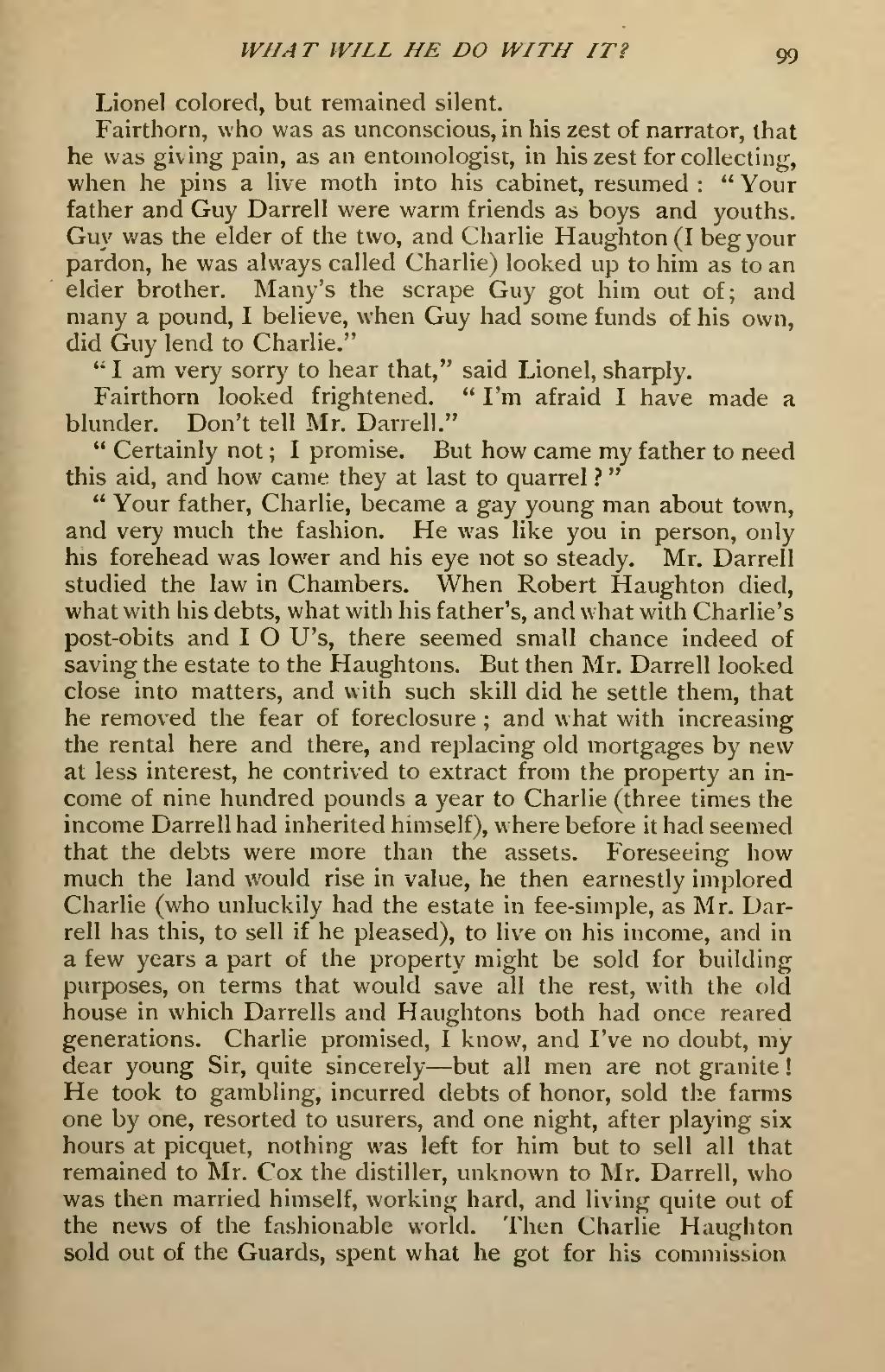Lionel coloured, but remained silent.
Fairthorn, who was as unconscious in his zest of narrator that he was giving pain as an entomologist in his zest for collecting when he pins a live moth in his cabinet, resumed: "Your father and Guy Darrell were warm friends as boys and youths. Guy was the elder of the two, and Charlie Haughton (I beg your pardon, he was always called Charlie) looked up to him as to an elder brother. Many's the scrape Guy got him out of; and many a pound, I believe, when Guy had some funds of his own, did Guy lend to Charlie."
"I am very sorry to hear that," said Lionel, sharply. Fairthorn looked frightened. "I 'm afraid I have made a blunder. Don't tell Mr. Darrell."
"Certainly not; I promise. But how came my father to need this aid, and how came they at last to quarrel?"
Your father Charlie became a gay young man about town, and very much the fashion. He was like you in person, only his forehead was lower, and his eye not so steady. Mr. Darrell studied the law in chambers. When Robert Haughton died, what with his debts, what with his father's, and what with Charlie's post-obits and I O U's, there seemed small chance indeed of saving the estate to the Haughtons. But then Mr. Darrell looked close into matters, and with such skill did he settle them that he removed the fear of foreclosure; and what with increasing the rental here and there, and replacing old mortgages by new at less interest, he contrived to extract from the property an income of nine hundred pounds a year to Charlie (three times the income Darrell had inherited himself), where before it had seemed that the debts were more than the assets. Foreseeing how much the land would rise in value, he then earnestly implored Charlie (who unluckily had the estate in fee-simple, as Mr. Darrell has this, to sell if he pleased) to live on his income, and in a few years a part of the property might be sold for building purposes, on terms that would save all the rest, with the old house in which Darrells and Haughtons both had once reared generations. Charlie promised, I know, and I've no doubt, my dear young sir, quite sincerely; but all men are not granite! He took to gambling, incurred debts of honour, sold the farms one by one, resorted to usurers, and one night, after playing six hours at piquet, nothing was left for him but to sell all that remained to Mr. Cox the distiller, unknown to Mr. Darrell, who was then married himself, working hard, and living quite out of news of the fashionable world. Then Charlie Haughton sold out of the Guards, spent what he got for his commission
